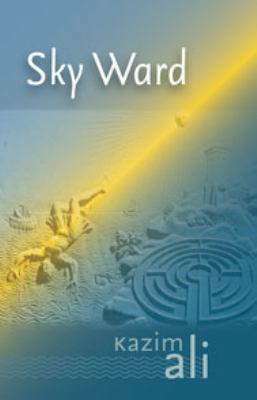BORN: 1971
OHIO CONNECTION: Resident
Oberlin
Born in London on April 5, 1971, to Muslim immigrants of Indian, Iranian, and Egyptian descent (political refugees from India), Kazim Ali became fascinated with poetry from his father’s eloquent readings from the Qur’an. After a residency in Jenpeg, Manitoba, between 1975 and 1979, Ali’s family relocated to Buffalo, New York.
In 1990, he enrolled in the University of Albany-SUNY to study for a B.A. and M.A. While in his sophomore year (1991), Ali became enthralled by the poetry of Lucille Clifton (1936-2010) and Emily Dickinson (1830-1866). He became fascinated by Clifton’s use of iambs, choriambs, spondees, and the connection between her prosody and the voices of John Milton and William Blake. Dickinson’s attention to syllable, form, and predilection towards “mixing dictions (Latinate and Germanic),” demonstrated to Ali that he, too, could discover “a new English, a different English, in which to write.”
In 1997 while managing a national non-profit organization in Washington, D.C., Ali felt at a crossroads. Although his lauded work was impactful, Ali did it dispassionately. He yearned to immerse his life (and soul) in poetry as he had while in university. Although he was in a loving, fulfilling relationship with a seemingly ideal partner, Ali severed their relationship as its continuance required “coming out” to his parents. Heartbroken, Ali returned to Buffalo to live with his parents, joined a temp agency, and found employment in the HR Department at the Motorola factory in Elma, New York.
Ali’s life changed forever when he encountered Second Language, a volume by Pulitzer Prize winning poet Lisel Mueller. One of her poems in particular, “Monet Refuses the Operation,” Ali says “gave my life back to me, taught me that my own heart’s stirrings were real and right … the poem heard me, that the poem knew me in a way I did not yet know myself.” When Mueller was scheduled to give a reading at the University of Buffalo, Ali wrote to her, expressing the hope that he might meet her. Impressed by the two poems which he had enclosed, she invited him to attend the after-party being held in her honor as time would be lacking at the reading. Her encouragement and enthusiasm made him determined to become a recognized poet.
He submitted his best poems to fourteen MFA programs (other than Iowa’s, which previously had rejected his submissions). One accepted him: New York University. To meet travel expenses, Ali contacted every person in Buffalo with whom he was acquainted and invited them to his parents’ house for an impromptu exhibition of the twenty canvases which he had painted over the years. Only four of the paintings sold, netting Ali $700 of which $400 came from a generous cousin. It was enough. Ali graduated in 2001.
In 2004, Ali and Jennifer Chapis (a former award-winning New York University professor and poet turned master healer and spiritual guide) founded Nightboat Books, a nonprofit literary press based in Brooklyn. Although he stepped down after 2007 from being Nightboat’s publisher, Ali served as an editor and president of its board of directors.
Prior to his appointment at UC San Diego as a professor of literature/creative writing where he focuses on poetry, cross-genre and hybrid writing, dance and performance studies, border studies, indigenous studies, yoga and spiritual practice, translation theory and practice; Ali became an associate professor of creative writing and comparative literature at Oberlin College.
His poetry volume Sky Ward won the Ohioana Book Award in Poetry, and the poetic memoir Bright Felon: Autobiography and Cities was a finalist for the Ohioana Book Award in Poetry.
Beyond authoring nearly twenty books of poetry, prose and cross-genre work, Kazim Ali has translated books by Mahmoud Chokrollahi, Marguerite Duras, and Sohrab Sepehri.
Additional Resources
“Q & A American Poetry: Kazim Ali.” 2010. Poetry Society of America. Accessed March 3, 2023.
Book Reviews: Bright Felon (Publishers Weekly, July 20, 2009); Fasting for Ramadan (Publishers Weekly, April 25, 2022); Sky Ward (Publishers Weekly, May 27, 2013)
Kazim Ali: Wikipedia article

